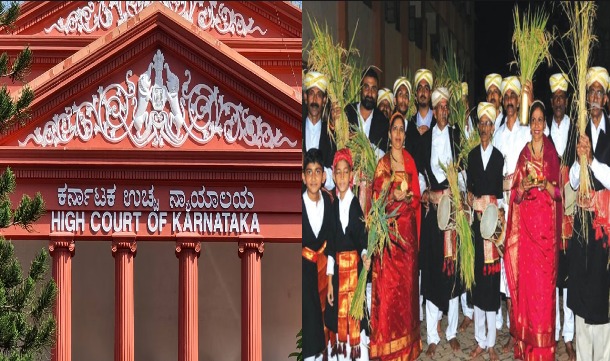
The Karnataka High Court issued notice to the State and Union Government on Monday on plea seeking the establishment of a commission to consider the demands for granting Coorg Geo-Political Autonomy or Self-Rule and inclusion in the Indian Constitution’s Schedule List (ST).
A division bench of Chief Justice Prasanna B Varale and Justice MGS Kamal issued notice on Dr. Subramanian Swamy’s petition, which is returnable in 8 weeks.
The court also allowed him to amend the petition by Tuesday, allowing him to transpose the respondent Codava National Council as the petitioner, given that he supports the Council’s cause.
According to the petition, until 1956, when the State Reorganization Act went into effect, the Codava race had their own small but content State called Part ‘C’, State of Coorg. All hopes and aspirations of the Codava race were “watered down” after the merger of Coorg into Vishala Mysore, the current state of Karnataka.
The plea further states that following the adoption of the Indian Constitution in 1950, the Coorg Legislative Council ceased to exist and a new Legislative Assembly was established under the Part C State Act, 1951.
Following that, the State Re-Organization Act of 1956 resulted in the merger of Coorg with Vishala Mysore, paving the way for the formation of the State of Karnataka. Coorg had a Legislative Assembly with 24 members and a functional government from 1952 to November 1, 1956.
According to Article 244 of the Indian Constitution, the sixth schedule was enacted in 1949.
The Sixth Schedule to the Indian Constitution allows for the formation of autonomous administrative divisions within their respective states. With the exception of two councils in Ladakh and one in West Bengal, the majority of these autonomous district councils are located in India’s North Eastern states. The Sixth Schedule has resulted in the formation of ten autonomous councils in Assam, Meghalaya, Mizoram, and Tripura.
The indigenous and tribal groups in the north-eastern states are said to have significant autonomy as a result of the sixth schedule. Tripura has one autonomous district council, while Assam, Mizoram, and Meghalaya have three.
Thus, it is prayed that, in the public interest and to protect the community’s history and culture, the Respondents be directed to form / appoint a commission to investigate the Codava National Council’s demands under the supervision of the Court.




